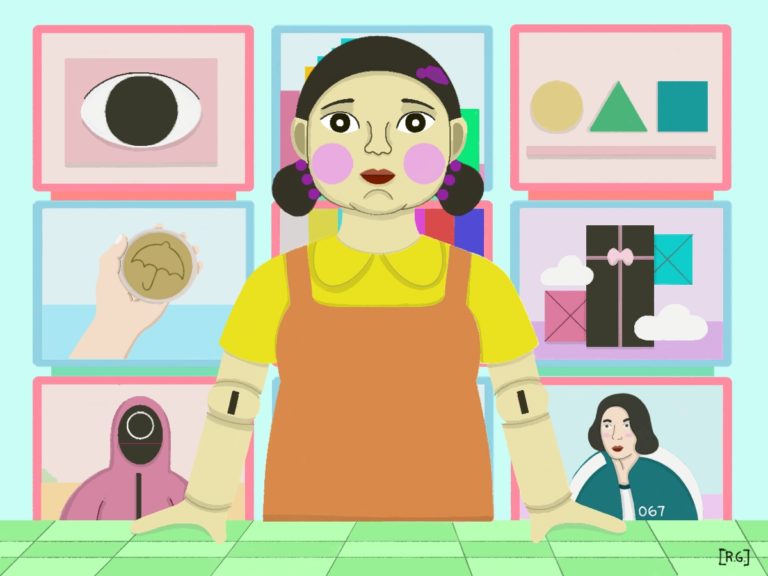Hwang Dong Hyuk’s “Squid Game” has managed to capture the world by storm seemingly overnight. In fact, since its initial release last September 17 this year on Netflix, the show has risen to number 1 in the streaming Titan’s Top 10 list in over 94 countries. This is a significant milestone for K-Drama fans everywhere because this is the first show to reach this position globally.
It starts off focusing on Seong Gi Hun, a lazy but well-meaning person still living off his mother’s measly income. We see his betting habit get the best of him, which ultimately leads him to participate in the Squid Game. Here, the story opens up, and we see a plethora of characters who have one thing in common – financial woes. They engage in 6 deadly games, and it is up to them to scratch and claw their way to survive. There can only be one and walk away as the ultimate winner of the prize money in the end.
The stunning visuals, gripping story, and its often-gory scenes have garnered up to 111 million views and counting in its initial run. As each day passed, this 9-episode miniseries has slowly carved itself its rightful place in pop culture history alongside recent favorites such as “Breaking Bad” and “Mad Men.”
The crazy thing about it all is that it still lives on in our conversations and our collective minds even though it concluded months ago. Perfect examples of this phenomenon would be the subsequent memes released and its popularity as a costume option this Halloween. Not to mention all the other issues sprouting from this, such as some New York schools banning wearing the costumes entirely because of the show’s violent content.
A modern tale of survival and greed, Squid Game’s popularity isn’t one resulting in pure coincidence alone, as one might suspect. It transcends this modern perception of a show going viral because it tackles a topic we all know too well. Despite being in a dystopian setting, it has painted this stunning picture of how modern society operates, albeit in a more brutal way. Even with its colorful and playful nature, it reminds us of the dark reality that haunts us from time to time. Although we live in a structured society, we are potentially capable of doing unspeakable things for money’s sake. As a viewer myself, this scares me as well as offers me a deeper understanding of our relationship with money. It triggers this internal discussion as to how I view money in my life and its placement in the list of goals to pursue in the future.
Hyuk’s “Squid Game”’s meteoric rise isn’t just about the pretty colors found in its costumes and its lovable cast of characters. Nor does it lie with this cute yet sinister-looking doll named Younghee or the delectable dalgona candy. The key to its popularity lies more profound than just the superficial over the top scenes we see on our screens. It tells the story of the human condition creatively and exposes the reality that whether we like it or not, money is one of the showrunners in this game we call life.



